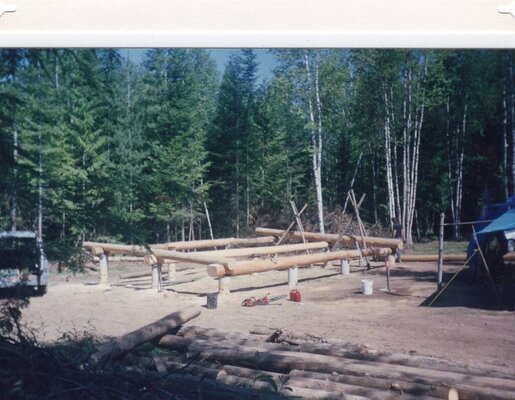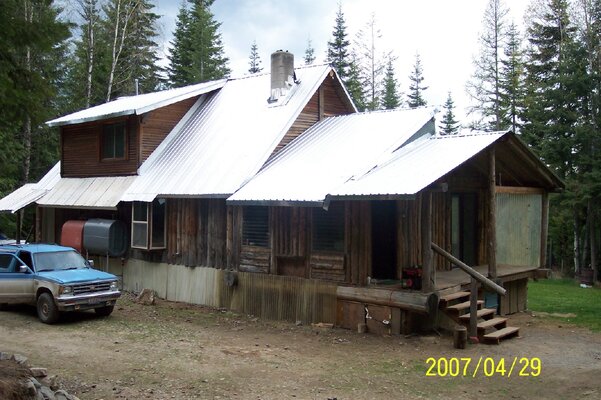I have removed the toilet on all 4 campers, and never installed on two.
Black water is gross, and dumping it and dealing with it is more gross.
I poop in a bucket with a 3 cent trash bag that I used the day before as a trash bag. As a man I can manage to simultaneously squirt the other side into a p-jug so the bag is not full of liquid. If it is full of liquid it has never been an issue and I have never had a leak.
The bag can be stored as trash.
Gas stations, I have found, have convenient trash cans at the pump.
I am not someone that needs a magazine and 20 minutes of my day to discard my waste... Im in and out in seconds, so I do not need comfort, a bucket is fine.
Not having that dedicated location for a toilet means more storage room. Not having a toilet means no splatter and no stink.
I have owned and used for years the portable flush toilets. They are easier than a black tank, but you still have to carry the little black tank and dump it, then rinse it. Ick. I just prefer the cleanliness of the bag.
The composting toilets are gimmicky as far as composting. I doubt anyone leaves that stuff in there long enough to make compost. At best they are managing the smell and maybe drying it out.
A crow taught me in the desert that if you leave the bag open during the hot dry desert day that the little log will dry out and not have any odor. Does not work on the East coast though.
If you have female company then they do make a real toilet seat that fits on the bucket.
Do not defacate in or near a stream. The forest wants you 200 feet from a stream even for tent camping. Be far enough away that your waste cannot find the stream during a rain event.
For families the bucket and bag might not work as well.
You can use a bucket still and just cover it with saw dust or whatever and move bucket outside when not using. Think outside the box..
The reason RV manufacturers are not using composting is because RVs are built to appeal to the wife, not the man. Cheaply built yet pretty campers sell bc the wife likes the curtains.
So someone at the gas station has to get rid of your hazmat, talk about yuk. I'm sure you get caught it's against the law in every state. Yep I'm a retired cop look at the penalties at the bottom.
What Is Illegal Dumping?
The definition of illegal dumping varies by state, but usually involves one of the following scenarios:
dumping waste on public or private property that is not licensed or permitted to receive waste
- dumping waste, without a license or permit, into sewers or waterways, or
- allowing another to dump waste on one's land, without being licensed to receive such waste.
The federal government has also passed multiple laws designed to protect the environment. These federal laws, such as the Resource Conservation and Recovery Act, have complex permitting requirements and typically apply to large volumes of hazardous waste.
Is Illegal Dumping a Misdemeanor or a Felony?
Illegal dumping can be a
misdemeanor or a felony, depending on the state and on a number of other factors, such as:
the amount of waste
the type of waste, and whether it is hazardous
whether the dumping is committed by an individual or a business, and
whether the defendant has committed prior offenses.
Dumping either hazardous or large quantities of waste, or being a repeat offender, are factors that make felony charges more likely.
Who Can Be Prosecuted?
Prosecutors can file charges against individuals and companies that violate illegal dumping laws. In some instances, the law allows prosecution of a company's executives and managers if they should have known about the illegal dumping, even if they did not have actual knowledge of the violation.
Chapter 8.62 Infectious Waste
8.62.110 Penalties.
A. Enforcement. All violations of this chapter are determined to be detrimental to the public health, safety and welfare and are hereby declared to be public nuisances.
B. Any generator who violates or fails to comply with any of the provisions of this chapter shall be subject to the following penalties:
1. For a first violation, the generator shall pay a $150.00 civil penalty; attend a mandatory biomedical waste training course designated through the County public health district; and submit a biomedical waste management plan to the County public health district within 30 days of being issued a citation and/or notice of violation. In addition to the civil penalty, the generator shall also be responsible for the cost of reviewing the biomedical waste management plan at a rate of not less than $65.00 per hour; and shall reimburse the county for all mitigation, cleanup, and decontamination costs resulting from the violation at a rate of not less than $185.86 per hour.
2. For a second violation within one calendar year, the violator shall pay a $1,000 civil penalty. In addition to the civil penalty, the generator shall reimburse the County public health district at a rate of $65.00 per hour, and the county for all mitigation, cleanup, and decontamination costs resulting from the violation at a rate of not less than $185.86 per hour.
3. For a third violation within one calendar year, the generator shall pay a $4,000 civil penalty. In addition to the civil penalty, the generator shall reimburse the County public health district at a rate of $65.00 per hour, and county for all mitigation, cleanup, and decontamination costs resulting from the violation at a rate of not less than $185.86 per hour.
4. For a fourth or any subsequent violation within one calendar year, the generator shall pay a $10,000 civil penalty and shall lose any and all waste disposal privileges at County landfills for a period of six months. In addition to the civil penalty, the generator shall reimburse the Okanogan County public health district at a rate of $65.00 per hour, and county for all mitigation, cleanup, and decontamination costs resulting from the violation at a rate of not less than $185.86 per hour.
5. A generator, whose waste disposal privileges have been suspended, may apply in writing for probationary reinstatement of waste disposal privileges to the County public health district. The generator’s waste disposal at County landfills shall be subject to monitoring by the Okanogan County public health district during the probationary period and the generator shall pay all cost of monitoring at a rate of not less than $65.00 per hour.
6. Generator’s waste disposal privileges shall not be reinstated under subsection (B)(4) or (5) of this section until the violator has paid in full all outstanding penalties and costs.
7. Any generator who fails to pay in full any assessed penalties and/or costs within 30 days of being issued a citation and/or notice of violation shall have its waste disposal privileges at County landfills suspended until such time as payment is made in full.
8. Cost for decontamination of landfill equipment and/or site will be borne by violator at a minimum rate of $185.86 per hour.






